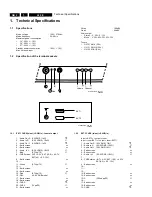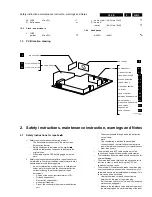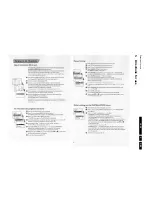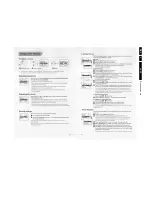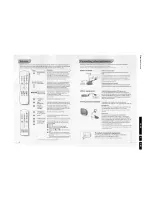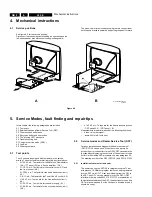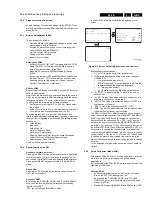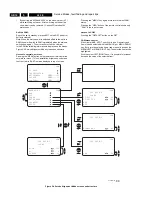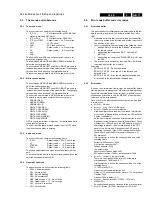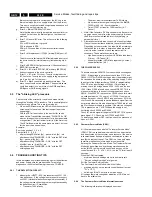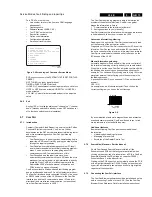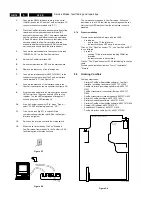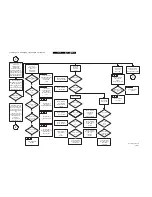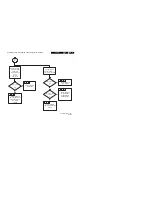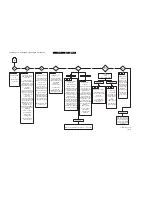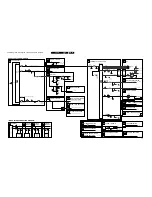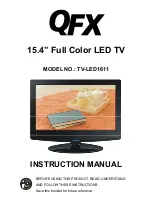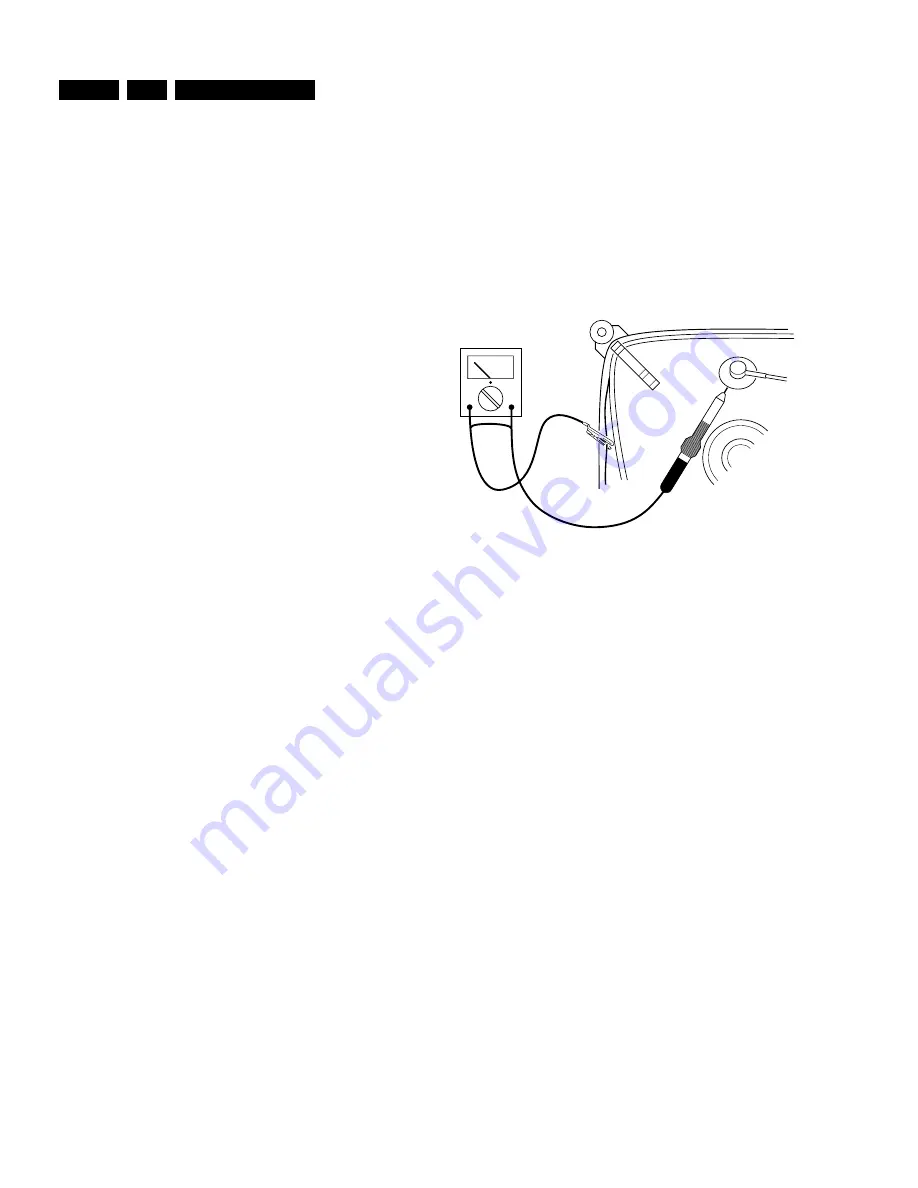
Safety instructions, maintenance instruction, warnings and Notes
GB 4
L9.2E
2.
or the aerial connection on the set. The reading
should be between 4.5 M
Ω
and 12 M
Ω
•
Switch off the TV and remove the wire between the
two pins of the mains plug.
–
The cabinet should be checked for defects to avoid
touching of any inner parts by the customer.
2.2
Maintenance instruction
It is recommended to have a maintenance inspection carried
out by a qualified service employee. The interval depends on
the usage conditions:
–
When the set is used under normal circumstances, for
example in a living room, the recommended interval is 3 to
5 years.
–
When the set is used in circumstances with higher dust,
grease or moisture levels, for example in a kitchen, the
recommended interval is 1 year.
–
The maintenance inspection contains the following actions:
•
Execute the above mentioned 'general repair
instruction'.
•
Clean the power supply and deflection circuitry on the
chassis.
•
Clean the picture tube panel and the neck of the picture
tube.
2.3
Warnings
1.
ESD
w
2.
All ICs and many other semiconductors are susceptible to
electrostatic discharges (ESD). Careless handling during
repair can reduce life drastically. When repairing, make
sure that you are connected with the same potential as the
mass of the set by a wristband with resistance. Keep
components and tools also at this same potential.
3.
Available ESD protection equipment:
–
Complete kit ESD3 (small table mat, Wristband,
Connection box, Extension cable and Earth cable)
4822 310 10671
–
Wristband tester 4822 344 13999
4.
In order to prevent damage to ICs and transistors, all high-
voltage flashovers must be avoided. In order to prevent
damage to the picture tube, the method shown in Fig. 2.1
should be used to discharge the picture tube. Use a high-
voltage probe and a multimeter (position DC-V). Discharge
until the meter reading is 0V (after approx. 30s).
5.
Together with the deflection unit and any multipole unit, the
flat square picture tubes used form an integrated unit. The
deflection and the multipole units are set optimally at the
factory. Adjustment of this unit during repair is therefore not
recommended.
6.
Be careful during measurements in the high-voltage
section and on the picture tube.
7.
Never replace modules or other components while the unit
is switched on.
8.
When making settings, use plastic rather than metal tools.
This will prevent any short circuits and the danger of a
circuit becoming unstable.
9.
Wear safety goggles during replacement of the picture
tube.
2.4
Notes
The direct voltages and oscillograms should be measured with
regard to the tuner earth (
v
), or hot earth (
u
) as this is called.
The direct voltages and oscillograms shown in the diagrams
are indicative and should be measured in the Service Default
Mode (see chapter 8) with a colour bar signal and stereo sound
(L:3 kHz, R:1 kHz unless stated otherwise) and picture carrier
at 475.25 MHz.
Where necessary, the oscillograms and direct voltages are
measured with (
D
) and without aerial signal (
E
). Voltages in
the power supply section are measured both for normal
operation (
G
) and in standby (
F
). These values are indicated
by means of the appropriate symbols.
The picture tube PWB has printed spark gaps. Each spark gap
is connected between an electrode of the picture tube and the
Aquadag coating.
The semiconductors indicated in the circuit diagram and in the
parts lists are completely interchangeable per position with the
semiconductors in the unit, irrespective of the type indication
on these semiconductors.
Figure 2-1
V
CL 26532098/042
140792
Summary of Contents for L9.2EAA
Page 5: ...Directions for use GB 5 L9 2E 3 3 Directions for use ...
Page 6: ...Directions for use GB 6 L9 2E 3 ...
Page 7: ...Directions for use GB 7 L9 2E 3 ...
Page 31: ...Schematics and PWB s GB 31 L9 2E 7 ...
Page 32: ...Schematics and PWB s GB 32 L9 2E 7 ...
Page 38: ...Schematics and PWB s GB 38 L9 2E 7 ...
Page 42: ...Schematics and PWB s GB 42 L9 2E 7 Personal notes Personal notes ...


